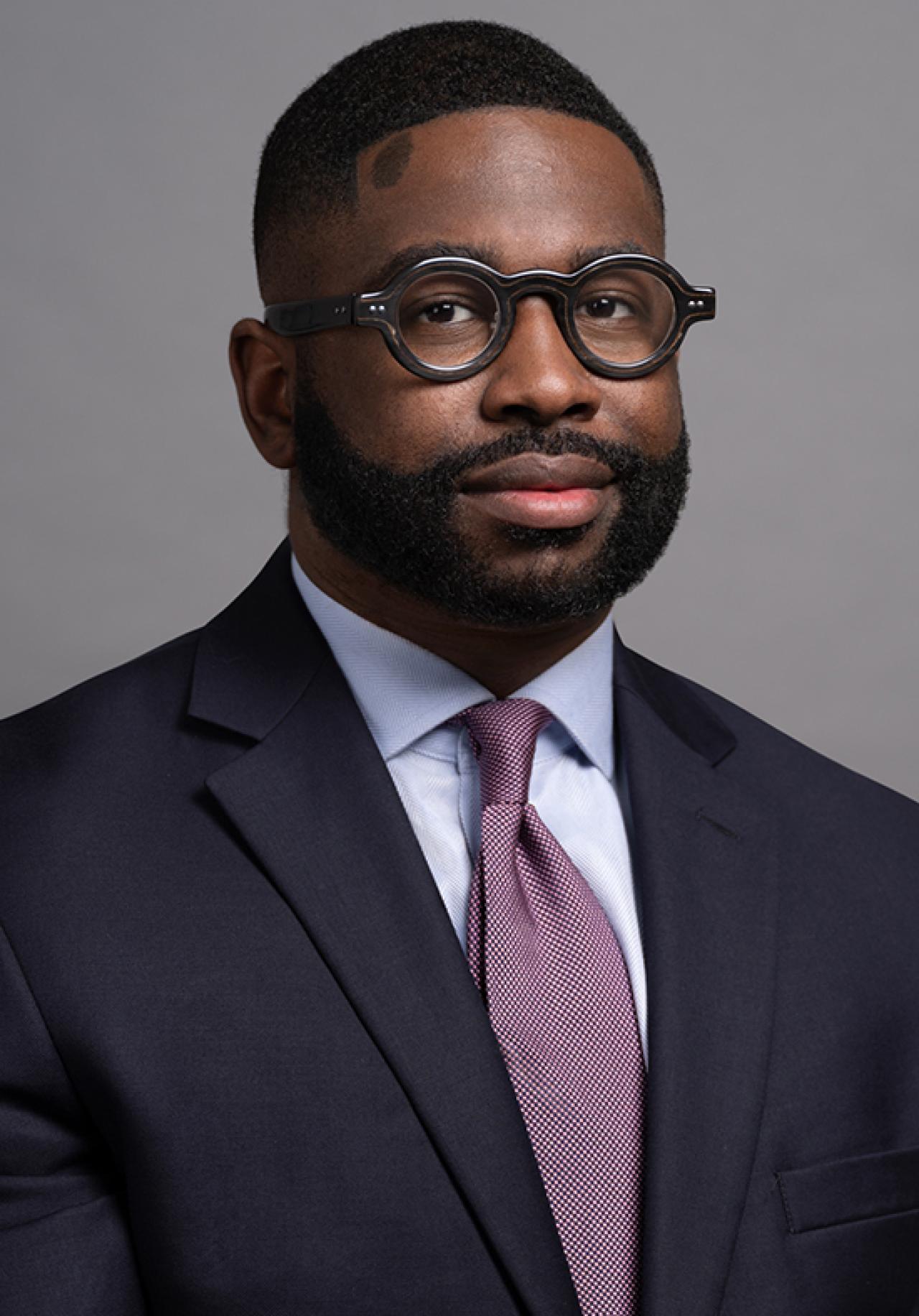It's not every day that public health students have a hand in shaping federal legislation. But that's exactly what happened over the past two years in a Columbia Mailman classroom for a course titled Law & Policy: Mass Incarceration in the United States. Students offered input on a policy proposal that is now the basis of the Smart Sentencing Adjustments Act introduced this week by New Jersey Senator Cory Booker and California House Representative Tony Cárdenas.

Hernandez Stroud, JD
The seven-week course is taught by Hernandez D. Stroud, adjunct professor in Health Policy and Management, who co-wrote the policy proposal from which the legislation was modeled in his role as a counsel at the NYU Brennan Center for Justice. Offered in the fall, his Columbia Mailman course brings together graduate students from across the university-Public Health, Law, Medicine, SIPA, Journalism, and others-to examine mass incarceration through a public health lens. The students delve into the root causes of mass incarceration, prison and jail conditions, and ways to improve the lives of people with criminal records.
To aid their learning, the students engage with some of the nation's foremost authorities on public health and mass incarceration like Yale Law School professor James Forman Jr., winner of the 2017 Pulitzer Prize for his book Locking Up Our Own, as well as former U.S. District Judge Nancy Gertner of Massachusetts. And to demonstrate learning, students work in groups to imagine and draft their own government policy proposals; they also produce 30-minute, audio podcasts in which they interview experts to shed light on the criminal justice system's flaws. A key feature of the class is lively interdisciplinary debate over policy solutions-including the one drafted by their instructor.
"My students worked with me to essentially translate ideas about how our nation's systems of justice and public safety ought to function into words for the policy," says Stroud, adding that he didn't at first tell students his connection to the policy proposal. "They debated one another on its key provisions, including specific language. They took their role seriously. It was inspiring and instructive to see them grapple with the proposal's implications."
The Smart Sentencing Adjustments Act would establish a $2 billion grant program to incentivize states to reduce their prison populations by 20 percent over three years while implementing policy changes designed to enhance public safety, help communities thrive, and ensure people don't return to prison or jail. It includes 21 proven policy approaches that states can implement to safely and sustainably reduce prison populations. If the 25 states with the largest prison populations used these funds to reduce imprisonment by 20 percent, the Brennan Center estimates that roughly 179,000 fewer people would be confined.
"For a half century, the federal government has harnessed its grant-making power to spur the states to incarcerate ever more people for ever longer periods of time, making the United States the world's number one incarcerator," says Stroud. "Now it can and should use this same funding power to reverse course and begin to chip away at the excesses of mass incarceration."
Among the aspects of the legislation discussed in Stroud's class were the potential unintended consequences of language, the limits of political change, and the role that policy can play to make a true difference in people's and communities' lives. In the end, students proposed some alternate language which made it into the final Congressional bill. One public health student who was formerly incarcerated and earned their bachelor's degree through the Bard Prison Initiative (BPI) provided valuable feedback on ways to prevent recidivism and improve prison conditions.

Aldis Petriceks
Aldis Petriceks took the elective class on his way to earning an MPH before he continues his studies at Harvard Medical School. Mass incarceration isn't something you often learn about as a future MD. Of getting the opportunity to help shape the legislation, he says, "It's hugely exciting. It's very rewarding that Professor Stroud solicited and valued our feedback and incorporated it into his thinking on the bill." Looking ahead, Petriceks says he wants to publish articles to convince clinicians and academics to do more to engage with carceral medicine and the larger issue of mass incarceration. "There's a whole lot of work left to do," he says.
Several of Stroud's former students have gone on to work in the intersection of public health and criminal justice. One works for New York Governor Kathy Hochul and credits Stroud's course for "completely changing how [she] views mass incarceration" and for helping her figure out her professional passion. Another former student now works for the Vera Institute of Justice. Says Stroud, "There is nothing more satisfying than a student who tells you that your course changed the direction of their life. That is every professor's dream."
The Stroud class is only one part of a Columbia Mailman focus on mass incarceration. Going back to 2014, the School hosted a conference to spotlight the public health consequences of mass incarceration and opportunities to prevent it. More recently, research by Seth Prins, assistant professor of epidemiology and sociomedical sciences, has examined the prevalence of mental illness in state prisons and the factors behind the school-to-prison pipeline. Bob Fullilove, Associate Dean for Community and Minority Affairs, teaches public health to incarcerated students through BPI and brings those perspectives into the classroom; he has also recruited several BPI graduates to enroll as graduate students at Columbia Mailman.
While the number of incarcerated Americans has slowly been in decline, the U.S. still has by far the world's highest proportion of its population behind bars. According to a 2016 Brennan Center for Justice report, nearly 40 percent of the U.S. prison population is incarcerated without any compelling public safety justification. The COVID pandemic began to raise awareness around the health of incarnated populations and the risks posed to those living on the outside. In the worst days of the pandemic, jails and prisons released incarcerated individuals who are sick or of advanced age for compassionate reasons.
"COVID brought to people's attention the public health perils of incarcerating so many of society's members," says Stroud. "For perhaps the first time since the mass incarceration boom, policymakers were forced to question the wisdom and necessity of over-incarceration. We realized that public health must inform our policy prerogatives and that neglecting it comes at a huge risk to all of us."






